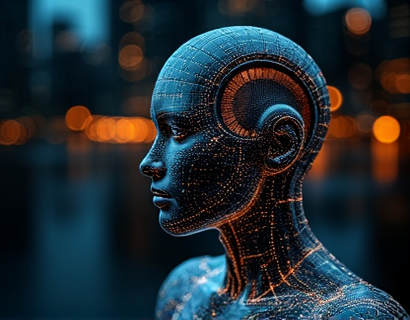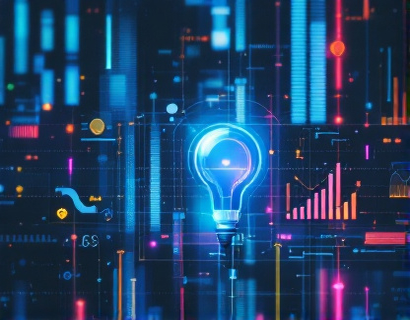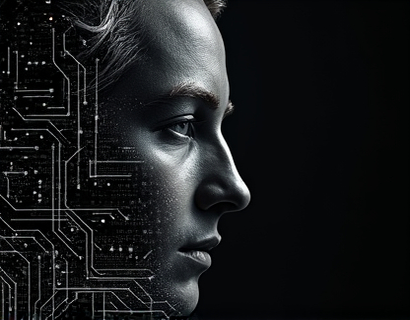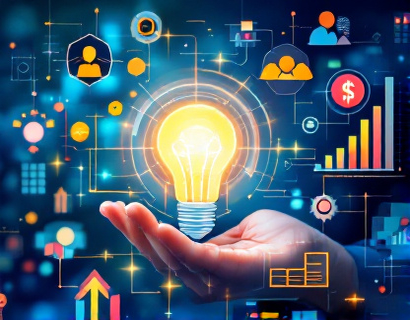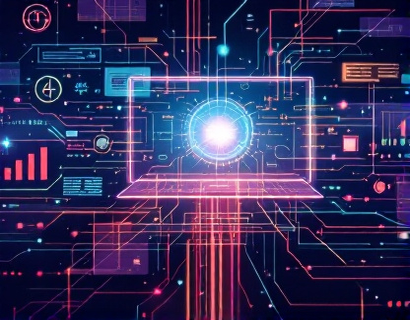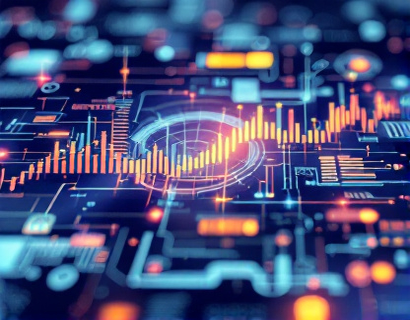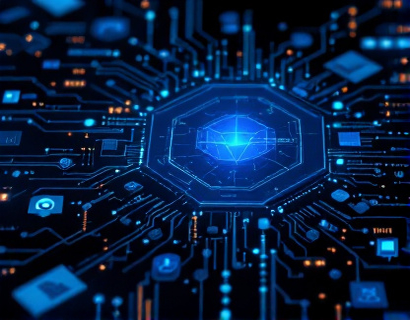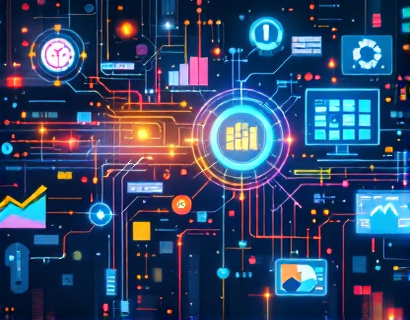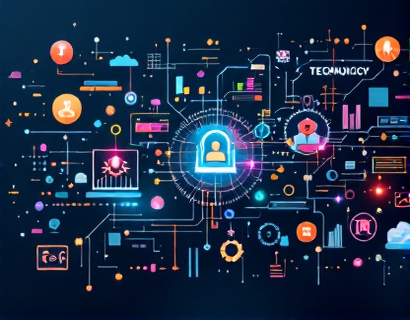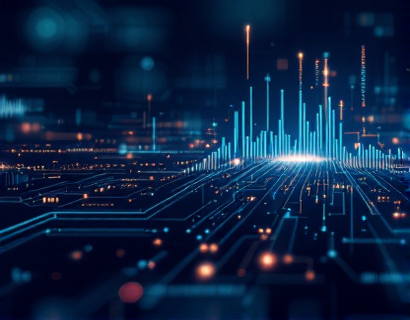Unlocking the Potential of Crypto and AI: Transforming Digital Experiences for the Future
The intersection of cryptocurrency and artificial intelligence (AI) is paving the way for a new era of digital innovation. This convergence is not just a technological curiosity but a transformative force that is reshaping how we interact with digital services, manage data, and secure transactions. As we stand on the brink of this revolution, it is crucial for tech leaders and early adopters to understand the dynamics at play and the opportunities that lie ahead. This article delves into the synergies between crypto and AI, exploring how these technologies are merging to create more secure, efficient, and user-friendly digital experiences.
The foundation of this transformation lies in the unique properties of blockchain technology, the underlying infrastructure for cryptocurrencies. Blockchain's decentralized, transparent, and immutable ledger provides a robust framework for building trust in digital interactions. When combined with AI, which excels in pattern recognition, predictive analytics, and automation, the potential for innovation becomes immense. Together, these technologies can enhance security, optimize operations, and create personalized user experiences that were previously unimaginable.
Enhancing Security with Crypto and AI
One of the most significant benefits of integrating crypto and AI is the enhancement of security measures. Traditional digital systems often rely on centralized authorities to manage and secure data, making them vulnerable to breaches and fraud. Blockchain, with its decentralized nature, distributes trust across a network of nodes, reducing the risk of single points of failure. AI can further bolster this security by detecting and mitigating threats in real-time.
Machine learning algorithms can analyze vast amounts of data to identify unusual patterns that may indicate a security breach. These algorithms can adapt and learn from new data, continuously improving their ability to detect and respond to threats. For instance, AI-powered systems can monitor blockchain transactions for signs of fraud or anomalous behavior, alerting users and administrators to take immediate action. This proactive approach to security is essential in a world where cyber threats are becoming increasingly sophisticated.
Moreover, AI can enhance the security of private keys and wallet management. Traditional methods of storing private keys, such as hardware wallets, can be compromised through various means. AI-driven solutions can implement multi-factor authentication and behavioral analysis to ensure that only authorized users access sensitive information. By combining the immutability of blockchain with the adaptive security of AI, users can enjoy a higher level of protection for their digital assets.
Optimizing Operations through AI and Crypto
Beyond security, the integration of AI and crypto can significantly optimize various operational aspects of digital services. Smart contracts, self-executing contracts with the terms directly written into code, are a prime example of this synergy. These contracts can automate and enforce agreements without the need for intermediaries, reducing costs and increasing efficiency.
AI can enhance smart contracts by providing intelligent logic and decision-making capabilities. For instance, AI algorithms can analyze market conditions, user behavior, and other relevant data to dynamically adjust the terms of a smart contract. This adaptability ensures that contracts remain relevant and effective, even as external conditions change. In supply chain management, for example, AI can optimize the execution of smart contracts based on real-time data, ensuring that goods are delivered efficiently and cost-effectively.
Another area where AI and crypto intersect is in the management of decentralized applications (dApps). dApps leverage blockchain to provide decentralized services, but their performance can be hampered by scalability issues and high transaction fees. AI can help optimize these applications by predicting and managing network loads, optimizing resource allocation, and reducing latency. By analyzing usage patterns and user behavior, AI can dynamically adjust the architecture of dApps to ensure smooth and efficient operation.
Personalized User Experiences
One of the most exciting aspects of the crypto and AI convergence is the ability to create highly personalized user experiences. Traditional digital platforms often rely on centralized data repositories to tailor content and services to individual users. However, this approach raises privacy concerns and can lead to data silos. Blockchain and AI offer a decentralized and privacy-preserving alternative.
AI-driven recommendation systems can analyze user data stored on a blockchain to provide personalized content and services without compromising privacy. By using homomorphic encryption and zero-knowledge proofs, these systems can process data securely and privately, ensuring that user information remains confidential. This approach not only enhances user trust but also complies with stringent data protection regulations.
Furthermore, AI can enhance user interactions by providing intuitive and adaptive interfaces. Natural language processing (NLP) and computer vision technologies, powered by AI, can enable seamless voice and gesture-based interactions with digital services. On a blockchain-based platform, these interactions can be recorded and verified, ensuring transparency and accountability. Users can have confidence that their preferences and interactions are being handled fairly and securely.
Innovative Financial Solutions
The finance sector is one of the most promising areas where crypto and AI can drive transformative change. Decentralized finance (DeFi) platforms, built on blockchain, offer a range of financial services such as lending, borrowing, and trading without traditional financial intermediaries. AI can enhance these platforms by providing sophisticated risk management and fraud detection capabilities.
AI algorithms can analyze transaction patterns and user behavior to identify potential fraudulent activities in real-time. This proactive monitoring helps maintain the integrity of DeFi platforms and protects users from financial losses. Additionally, AI can optimize trading strategies by analyzing market data and predicting price movements, enabling users to make more informed investment decisions.
Stablecoins, cryptocurrencies pegged to stable assets like fiat currency, can benefit from AI-driven stability mechanisms. AI can monitor economic indicators and market conditions to adjust the supply of stablecoins, maintaining their value and reducing volatility. This stability is crucial for the adoption of crypto in everyday transactions and as a store of value.
Challenges and Considerations
While the potential of crypto and AI is vast, there are several challenges and considerations that must be addressed. Regulatory uncertainty remains a significant hurdle, as governments worldwide are still grappling with how to regulate these emerging technologies. Tech leaders and organizations must stay informed about regulatory developments and ensure compliance to avoid legal issues.
Another challenge is the technical complexity of integrating crypto and AI. Developing robust and scalable solutions requires expertise in both blockchain and machine learning. Organizations need to invest in skilled personnel and infrastructure to overcome these technical barriers. Collaboration with research institutions and technology partners can also accelerate innovation and address complex challenges.
Privacy concerns are paramount in the crypto and AI ecosystem. While blockchain offers transparency, it can also expose sensitive data. Implementing advanced encryption techniques and privacy-preserving protocols is essential to protect user information. Users must also be educated about the risks and best practices for maintaining their privacy in a decentralized environment.
The Future Landscape
As the integration of crypto and AI continues to evolve, the future landscape of digital experiences will become increasingly sophisticated and user-centric. The combination of decentralized systems, secure transactions, and intelligent automation will redefine how we interact with digital services. Here are some key trends and predictions for the future:
- Increased Adoption of DeFi: Decentralized finance will continue to grow, offering more financial inclusivity and innovation. AI will play a crucial role in enhancing the security and efficiency of DeFi platforms.
- Enhanced User Privacy: Privacy-focused technologies, such as zero-knowledge proofs and homomorphic encryption, will become more prevalent, allowing users to maintain control over their data while benefiting from AI-driven services.
- Interoperability and Ecosystem Integration: Standardization efforts will lead to greater interoperability between different blockchain platforms and AI systems, creating a more seamless and integrated digital ecosystem.
- AI-Powered Blockchain Governance: AI can assist in the governance of blockchain networks by analyzing community feedback, predicting trends, and optimizing decision-making processes.
- Sustainable Cryptocurrencies: The environmental impact of crypto mining is a growing concern. AI can help optimize energy usage and develop more sustainable consensus mechanisms, aligning crypto with global sustainability goals.
In conclusion, the convergence of crypto and AI is not just a technological trend but a fundamental shift in how we build and interact with digital systems. By embracing these technologies, tech leaders and early adopters can unlock new possibilities, enhance security, optimize operations, and create personalized user experiences. As the landscape continues to evolve, staying informed and adaptable will be key to thriving in the blockchain era.



